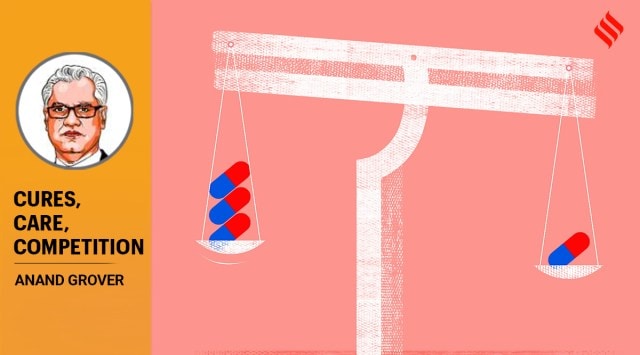
A good health system requires a constant supply of quality affordable medicines. Medicines constitute nearly 50 per cent of the health costs incurred by people. The high costs of medicines are primarily due to patenting. This can be overcome by allowing the competition which generic pharmaceutical companies provide. The Indian generic industry has been the provider of essential quality medicines at affordable prices all over the world. However, the newly amended patent rules could change the ecosystem. Indian patent rules were amended earlier this year, making it difficult to file opposition to patents at the pre-grant stage, thus allowing easy patenting and increasing drug prices.
The Indian Patent Law does have provisions to oppose the patenting of medicines. A successful opposition means that generic companies can produce the same drug. This allows for competition, the key to lowering prices. The opposition can also be registered to a proposed patent, and after it has been granted.
By the turn of the century, India could provide affordable and quality drugs because of the change in the Patent Act in the early 1970s. The law allowed protection only to the process through which a medicine was made, but not the product itself. This spurred the development of the generic industry, making India a net exporter of drugs by the late 1980s and the leading generic manufacturer by the 1990s.
However, there were headwinds in the form of the TRIPS Agreement of 1995 which mandated the re-introduction of product patents. Patents are to be granted for products which are both novel and inventive. However, in 2005, when amendments to the Patent Act had to be made following the TRIPS agreement and had to be introduced to the agreement, it was noticed that nearly 76 per cent of the drugs patented in the US and Europe were in only new forms — popularly known as me-too drugs. They did not have any significant increase in the therapeutic benefit. To ensure that India does not slip back, in 2005, all political parties and civil society came together to introduce an amendment to the Patent Act – Section 3(d). This was to make sure that an old drug in a new form would not be patented unless its therapeutic efficacy was significantly greater. This was upheld by the Madras High Court in the iconic Novartis case.
India also amended its patent law to take advantage of the flexibilities of the TRIPS Agreement. One of them pertained to opposition to patent applications at all stages – pre-grant and post-grant. It also allowed the revocation of patents and filing counterclaims. Rules were framed to facilitate these changes. It also allowed the government to issue licenses to other companies without the consent of the patent holder. The TRIPS Agreement allows such flexibility in patent laws. The Indian Patent Act stipulates that whenever reasonable requirements of the public are not met or a drug is not available at a reasonably affordable price, the government, at the instance of a generic company or any interested person, can issue a license to a firm to produce the drug. This can be done without consulting the patent holder.
These rules are now being sought to be altered because of pressure from pharma majors – largely Western and Japanese companies. The repeal of Section 3(d) has been a demand in the negotiations to Free Trade Agreements with the US, UK, and the EU.
Most pre-grant oppositions (PGOs) to patents today come from patients’ groups or civil society organisations. Generic companies are hesitant to file PGOs as they will not allow them to get a license from the Western or Japanese pharma company in case they get a patent.
Until the Rules were amended earlier this year, the patent controller would send the PGO to the applicant who would file a reply. The opponent to the patent was then allowed to file a rejoinder. The patent controller would then hear the PGO and arrive at a decision on the patent.
After the amendment to the patent rules, the patent controller is first to decide if the PGO is maintainable. The official can dismiss it without even hearing the opponent to the patent. This power is not only against the provisions of the Patent Act but allows arbitrary exercise of power.
In the past opposition by patients or patient organisations has scuttled numerous patents which are frivolous and have no therapeutic benefit. Data shows that PGOs reduce the likelihood of frivolous patents. The amendments will only help non-deserving patents, stymie competition and drive the prices of drugs up.
The opponent to the patent now has to pay fees which was not the case earlier. This is a financial burden for patients and civil society organisations and could discourage them from filing PGOs.
The new rules also alter the relations between the patent holder and the patent controller in another way. After a patent is granted, the patent holder is supposed to “work the patent” — produce the drugs in India. According to the old rules, the controller had to be given details about the production process every year. After the amendments, this information will be provided on a three-yearly basis. The non-working of the patent is one of the basis for seeking a compulsory license. The fact that data will not be available to the Patent Controller, and hence the public, will make compulsory licensing difficult.
The amended rules will prolong the life of drugs on account of frivolous patenting, increase their prices, and make lives difficult for patients.
Grover is a senior Supreme Court advocate. He was the UN Special Rapporteur on the Right to Health from 2008-14


